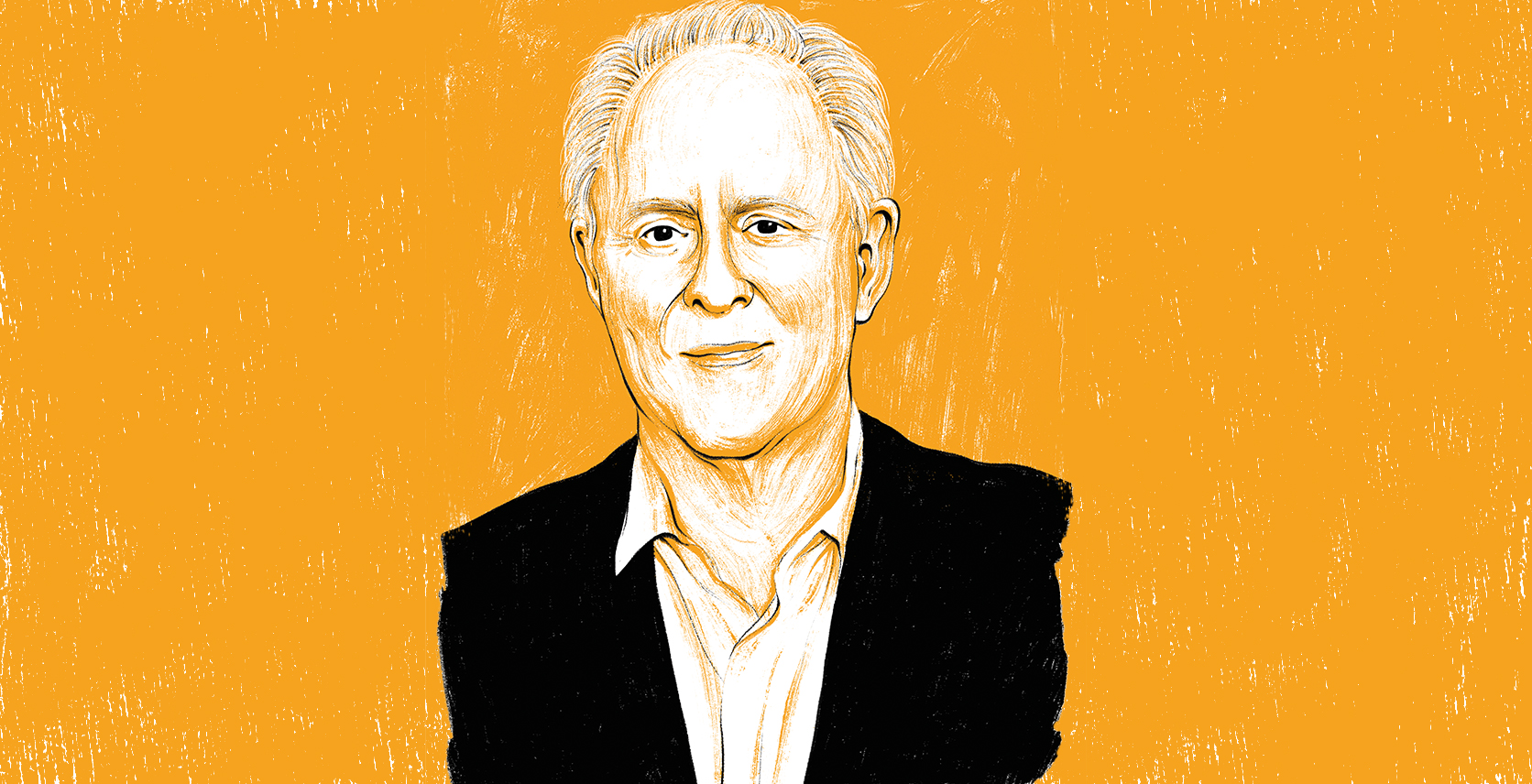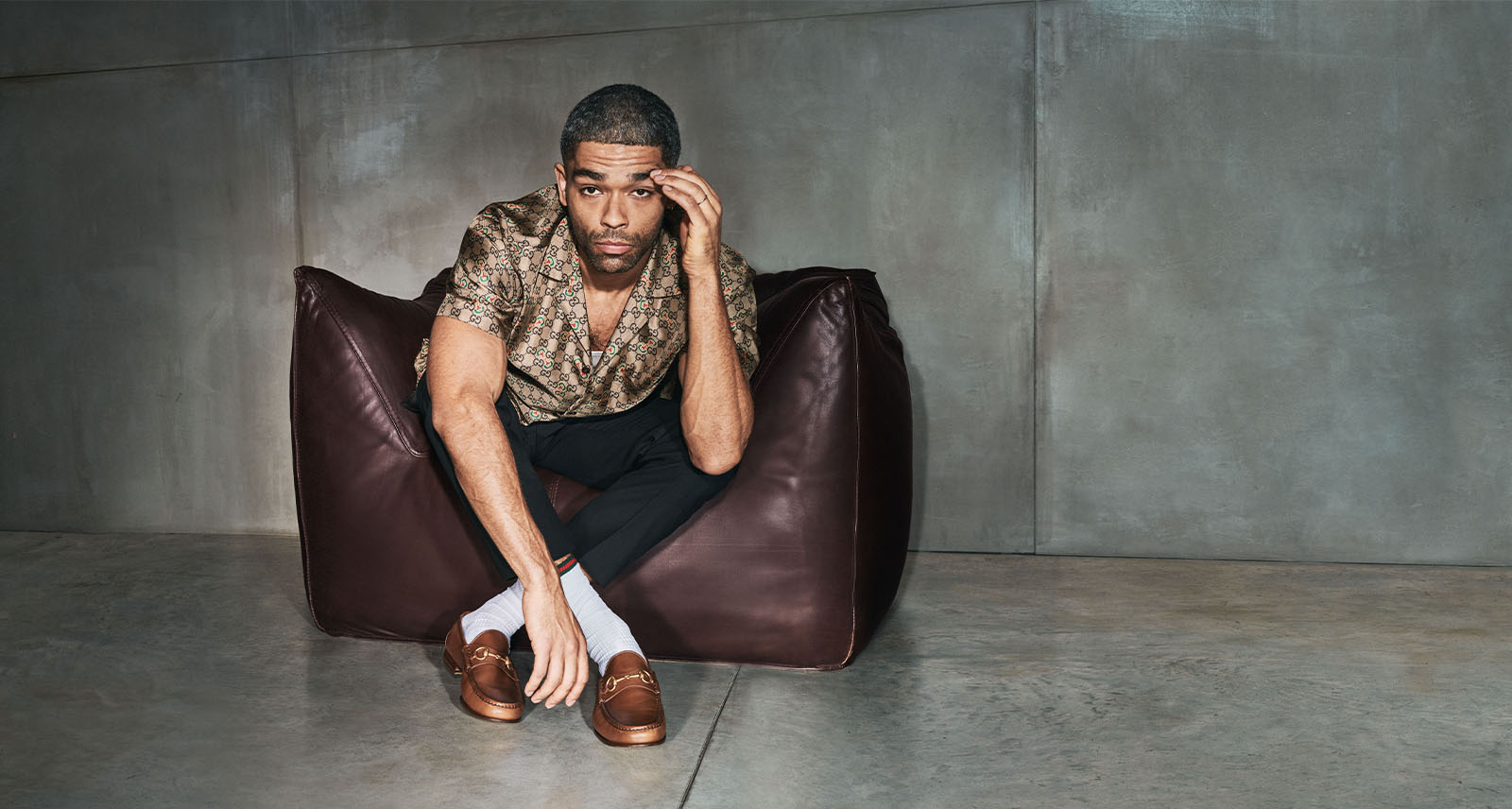John Lithgow on Why Third Acts Still Rock
Few entertainers can rival John Lithgow when it comes to acting range. For many, Lithgow is a household name thanks to his days probing earth’s eccentricities as extraterrestrial-in-disguise Dr. Dick Solomon on 3rd Rock from the Sun. As an actor in film, meanwhile, he’s taken care to consistently ground the big personalities he’s portrayed — among them, everyone from Shrek’s Lord Farquaad to The World According to Garp’s Roberta Muldoon — with incredible heart. And as a dramatic force, he has most recently brought his talents to The Crown playing Winston Churchill with memorable intensity. This is not even to acknowledge the fact that Lithgow’s also an accomplished stage actor, musician, and writer — and with dozens of awards to his name, he’s just one really great film performance (and a hit song) away from completing the coveted EGOT.
All this to say, it’s no surprise that the beloved polymath has no fewer than four wildly diverse projects — Mindy Kaling’s film Late Night, the romance flick Tomorrow Man, the Stephen King adaptation Pet Sematary, and the new play Hillary and Clinton — all lined up to premiere in the first half of this year. We caught up with one of old-school Hollywood’s most prolific working actors to hear why, after all his decades in film and television, he’s finally found his dream roles.
You’re on your way to rehearsals for a new play, Hillary and Clinton. I take it you’re playing Bill — who’s Hillary?
The wonderful Laurie Metcalf is playing Hillary. We’re revisiting the night before and the day after the New Hampshire primary in 2008 — if you remember, a big moment for Hillary’s first presidential campaign. It’s by the dazzling young playwright Lucas Hnath, and I find it a very moving play — gently comical, but still provocative about this political moment.
You’ve shared several Trump critiques on social media. Did your frustration with him drive you to this role?
It’s not something that I looked to do for that reason, no. I was a huge Hillary supporter in the last election, and I was devastated when she lost. But what I really look for are good people and good material, and those were here in spades. I think the best thing about the play is that it’s going to take people very much by surprise. You can’t do a play about a married couple who’s that well known alone in a hotel room without giving the audience both a very exciting and a very unsettling feeling of invasion of privacy.
Speaking of hotels, you just got back from Sundance before the weekend.
Sundance was great! I was in two movies that premiered at that festival, Late Night and Tomorrow Man, working with Emma Thompson in one, and Blythe Danner in the other. They were both pre-sold — Late Night sold immediately, and Tomorrow Man two weeks ago — so there was none of that horse-trading atmosphere going on. When you don’t yet have a distributor at a festival, you can end up as nervous as cats.
Late Night is written by [The Mindy Project’s] Mindy Kaling, right?
Yes. It’s mostly about the frenzy of late-night comedy, and I’m kind of a subplot. Mindy said she wrote the role with me in mind, which was very kind. I don’t hear that very often, so when I do, it always makes me much more inclined to say yes.
“I’m now a player of old men, and those are wonderful roles. The fear of losing your vitality and your viability are great subjects for an actor.”
In Tomorrow Man, your character is obsessed with preparing for a doomsday apocalypse. That seems another particularly timely topic. Is annihilation something on your mind?
The fact is, it’s not on anybody’s mind. People have this incredible capacity for denial, and that to me is very fascinating. I did the film in September of 2017. In January of 2018, a few months later, there were about 45 minutes in the state of Hawaii where they were told that nuclear armed missiles were on their way. And I do not hear anybody interviewed about what it was like to go through those 45 minutes.
What does that say to you?
I think that’s a demonstration of how brilliant we are at avoiding reality, when in fact this could happen, any day. I’m a 73-year-old man, which means that I was a schoolkid in the 1950s when there were nuclear attack drills being reported on television. I remember that, and this character never grew out of that. It makes a rather wonderful backdrop for a romantic comedy about two old people.
Your next project — an adaptation of Pet Sematary by Stephen King — has people fearing for their lives for a different reason: demonic forces.
It’s full-bore theatricality, and I kind of like that, being a theatre rat. You love scaring people just the way you love making them laugh and making them cry. So I’ve done my share of horror, with my Twilight Zone part, and Dexter for sure. It’s very operatic. But it’s not usually my favourite genre to watch, although I sure like it when it’s good — The Shining, and Rosemary’s Baby.
Another film adaptation of Pet Sematary came out in 1989, but flew under the radar. Why was the time right for a remake?
I never saw the first version of Pet Sematary, even though Fred Gwynne, who played the role I play, was a good friend. Horror is a much more popular genre right now, and I’d say that’s because it’s also being done really well now. A Quiet Place last year — that was a very intense story of a family, and you really care about that family. And that’s certainly true of Pet Sematary. It takes the anxiety of protecting your family and elevates it to the level of horror. As long as you work from an urgent truth like that, then it’s really great stuff.
On the topic of families, you’ve written a number of hit children’s books, and also performed concerts for kids. What helps you to connect with them?
I think it’s just a matter of empathy. My great hero is Fred Rogers. He wasn’t performing for adults at all — so children had the feeling that he was all theirs. When I invited him to come to one of my children’s concerts with the Pittsburgh Symphony Orchestra, I got him on the phone for a lovely conversation, and he asked me, very disarmingly: “Is there any silence in your concert? Because children can only really listen to music if it’s preceded by silence.” And that has had such an impact on me and how I interact with kids. But I haven’t written a kids book in a while — it’s high time.
Which of your roles has given you the greatest feeling of accomplishment?
I’d say the variety of things I’m known for is my source of real pride. The fact that I’m known for doing those many, many different things is weird — almost astonishing. To me, I’ve had four big breakthroughs: my first Broadway play, Garp, 3rd Rock, and The Crown — each of those got a huge amount of attention, but it’s more that they helped people to see me in very different ways.
With so many series getting revived these days, are you always sort of prepared to pick up the phone and have someone ask about a 3rd Rock reunion?
Actually, I have been asked to consider it. But I have this feeling that it’s important, always, to move on. I’m 20 years older, and Dick was very much a young man’s role, with crazy, cockeyed energy — my tempo has slowed a little bit. So no, I don’t believe we will ever have a reunion — but we will certainly have fantastic memories. I’m now a player of old men. And those are wonderful roles to play.
What have you learned from portraying characters in your age range?
Well in fact, a lot of the roles I’m being asked to play are even older than I am. I played King Lear a few summers ago at Central Park, and I’ve now been asked to play a 92-year-old. And I’m having the best time of my entire career! These are fantastic roles because they introduce issues of growing old and the fear of losing your vitality and your viability, which are great subjects for an actor. In Late Night, you see, I play Emma Thompson’s husband, who is older than her and also suffering from Parkinson’s disease. It’s a very touching relationship in the middle of this nutty comedy. That’s what’s great about these stories — they’re melancholy, but they’re also very life-affirming. Old age is waiting for all of us — those of us who are lucky, anyway. Those of us who are lucky will grow very old.










